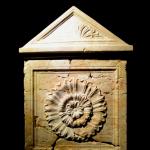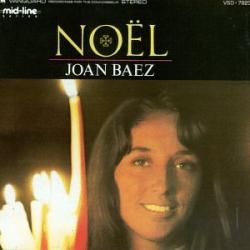
This has been a year of very big changes for the Williams family, as my oldest graduated high school, I walked away from academia after 15 years, and then Dan began a new job. This last development also necessitated our move from Carrollton, Georgia to Ashland, Ohio. Sure, some families would have also thought that this would be a great time to get a puppy too—because, why not? Rest assured; we still had enough sanity left to say: that’s a bad idea. The only life forms in this house are human–and we pay well to an exterminator to ensure it stays this way.
So, it’s all been good, but it’s all just been a lot. But in the midst of it all, one thing remains the same as each year: I got to read a lot of good books. Because when I said that this house is humans-only, I should have added: and books. There are a lot of books in this house. And more keep arriving regularly, and I’m running out of places to shove another bookcase, as I recently documented elsewhere. It’s getting dire. But I’m never switching to Kindle or electronic reading. Books must be held, smelled, lovingly embraced—or, on rare occasions, thrown across the room. The physicality of the reading experience is irresistible and irreplaceable.
In this post, I’d like to tell you about a few of my favorites, and (when applicable) include links to reflections I have written about some of them over the course of this year. (Also, here is last year’s favorite reads roundup)
A Vodolazkin Kind of Year
In 2022, I read much more nonfiction than fiction. 2023 was different. First and foremost, this is the year I read through all of the novels of Eugene Vodolazkin, a writer who has lived his adult life in the city of my birth. This made for an emotional ride in so many ways—like the discovery that the protagonist of Aviator lived on the street where I spent most of the first decade of my life.
In reading Vodolazkin’s Medieval saga of a novel, Laurus, I was reminded of Augustine. Both writers offer (as I wrote over at Front Porch Republic) a distinctly Christian vision of past and future, reminding us that for believers, history doesn’t end in the here-and-now.
Most of his novels consider Russia’s traumatic twentieth century—the toll that Communism took on people, ordinary and extraordinary alike. Vodolazkin’s writing is steeped in the transcendent, as he explores stories of people who are both body and soul. In his novel Brisbane, for example, we see, as I wrote, the significance of faith, hope, and love in the broken lives of people. Meanwhile, in his novels Solovyov and Larionov and Aviator, we see the difficulties of escaping the past—the painful history of a country holds its residents firmly in its clutches. This is particularly clear in Aviator, which is a miraculous tale of a do-over that, nevertheless, cannot turn out well—as I wrote in this essay.
Vodolazkin’s latest, A History of the Island, is probably my favorite of his works (and see Jeff Bilbro’s gorgeous review). It is quirky, whimsical, funny, and yet also devastatingly critical of the past century or more of Russian history, with its generations of oppressive leaders and of suffering people, with no redemption yet in sight—except maybe on this island.
In an Advent-appropriate essay for Plough this month, I got to reflect on the visions of divine repair in Vodolazkin’s novels alongside the Jewish doctrine of tikkun olam, repair of the world. Ultimately, we see in Vodolazkin’s novels, there is no repairing this shattered, broken world except through God.
Memoirs
Anna Starobinets, Look at Him—a heartbreaking memoir about contemporary Russia’s culture of death, and what this means for women with difficult pregnancies. Here’s my review.
Lyudmila Petrushevskaya, The Girl from the Metropol Hotel: Growing Up in Communist Russia—she is one of my favorite contemporary Russian writers, and I appreciated this chance to finally read her memoir. It was a lyrical but difficult read, perhaps even more difficult than I expected it would be.
A friend kindly sent me Rachel Hanel’s spiritual memoir, We’ll Be the Last Ones to Let You Down: Memoir of a Gravedigger’s Daughter. He was sure I’d love it–and I did! It is beautiful and moving and has (respectful) humor at times too.
I also loved Beth Moore’s memoir, which fellow Anxious Bencher Andrea Turpin reviewed.
Lest you think I only read (semi) depressing memoirs, I also read Shirley Jackson, Life Among the Savages and its sequel, Raising Demons – historian Dixie Dillon Lane sent me Jackson’s Life Among the Savages as a housewarming gift when we moved to Ohio, and I found it as hilarious as she promised. Jackson had quite a way with words to describe the hilarity of the mundane.
Books like Jackson’s remind us that kids are funny, even as they are just living their best lives every day, destroying our homes, scratching “Love” on the radiator (as fellow mom and writer friend’s Ivana Greco’s kids had done), jumping on the couch as if it were a trampoline (and occasionally knocking out a tooth as a result), or throwing things that are not clothes down the laundry chute thereby preventing it from functioning properly. And don’t even start me on writing on the walls—of the literal sort, of course.
Favorite Historical Reads
Kyle Harper, Plagues Upon the Earth—Harper is one of my absolute favorite historians of Late Antiquity, as thoroughly researched as he is readable. This year I read his latest book, and you can read my reflections/review of sorts here at the blog. In a nutshell, though, I loved the idea of thinking about history from a germ’s (or a virus’s) eye’s view. Just writing this description makes me want to go wash my hands again, just in case, so brb!
Tom Holland, Dominion—so many people this year kept telling me that I need to read this for my own work on the motherhood book I’m finishing for IVP Academic. So I finally read it, and it’s really so, so good. Holland’s main point is: Christian values have been integral for so many features of society that we take for granted.
Jeffrey Bolster, The Mortal Sea: Fishing the Atlantic in the Age of Sail—this was totally out of my field by every stretch, and I loved every bit of it. The gist: people long imagined the sea as this vast and inexhaustible supply of all the fish you can catch to eat and use in other ways (e.g., as crops fertilizer—who knew?). Except, every generation of fishermen also recognized that they were depleting this supply. So there’s been a tension in generation of modernity of trying to say “everything is fine,” while recognizing that maybe it wasn’t. This is a beautiful work of environmental history that will also make you think about the fish you eat—and the fish we don’t eat, because it’s all gone, overfished generations ago.
Other Books That I Loved
Susanna Clarke, Piranesi. Such a beautiful book with gospel undertones. I got a copy for every college graduate in my life this past summer.
Andrey Kurkov, Grey Bees (translated by the wonderful Boris Dralyuk!) – this novel is set in wartime Ukraine, and reminds us that the new invasion of 2022 is nothing new for so many people. I wrote here about how Piranesi and Grey Bees are both about introverts flourishing in pretty awful circumstances beyond their control, and God’s mercy hanging over them through it all.
Wendell Berry, Jayber Crow – this was very good but emotionally heavy. It was the sort of book that stays with you, and days later, you burst into tears just thinking about it.
Favorite Read-Aloud with Kids
Kenneth Grahame, The Wind in the Willows. I will end with this one, because it gives me such joy to think about this book–and especially to think about reading it with my kids. There were fancy cups of tea or hot cocoa and fresh scones from the oven. And we read and read and read, and our hearts were glad.













